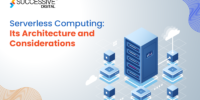As technology continues to advance, so does our responsibility to adopt sustainable practices in the IT sector. In this fast-paced IT Sustainability Sprint, we’ll explore quick and actionable tips to make your IT practices more environmentally friendly. Let’s dive into the world of Green IT!
1. Energy-Efficient Hardware Selection
Start your sustainability journey by opting for energy-efficient hardware. Look for devices and components with Energy Star ratings, which indicate compliance with energy efficiency standards. This simple switch can significantly reduce your IT infrastructure’s carbon footprint. ⚡
2. Virtualization for Resource Optimization
Embrace virtualization to maximize resource utilization and minimize the need for physical servers. Virtual machines allow you to run multiple operating systems on a single server, reducing hardware requirements and energy consumption. This efficiency contributes to a greener IT environment.
3. Cloud Computing for Scalable Sustainability
Migrate your services to the cloud for scalable and sustainable IT operations. Cloud providers optimize resource allocation, leading to reduced energy consumption compared to maintaining on-premises data centers. It’s a strategic move toward a more sustainable IT infrastructure. ☁️
4. Power Management Policies
Implement power management policies to ensure that devices are not consuming unnecessary energy when not in use. Automated power-off settings for computers and peripherals during periods of inactivity can make a substantial impact on energy savings.
5. Green Software Development Practices
Encourage green software development practices within your team. Optimize code to run efficiently, reducing the computational load and energy requirements. Additionally, promote the use of eco-friendly coding standards and frameworks. ️
6. E-Waste Management and Recycling
Dispose of electronic waste responsibly by partnering with certified e-waste recycling facilities. Recycling IT equipment not only prevents harmful substances from entering landfills but also allows for the extraction of valuable materials for reuse. ️
7. Remote Work and Reduced Commuting
Promote remote work to reduce the need for daily commuting. Remote work not only enhances employee work-life balance but also contributes to lower carbon emissions associated with daily commutes. Embracing virtual collaboration tools can make this transition seamless.
8. Green Data Center Design
Design and optimize data centers with sustainability in mind. Employ energy-efficient cooling systems, utilize renewable energy sources, and implement advanced monitoring to ensure optimal resource utilization. Green data centers are a cornerstone of sustainable IT practices.
9. Employee Awareness Programs
Educate your IT team and employees about the importance of sustainability. Conduct awareness programs to foster a culture of green practices within the organization. Small changes in individual behaviors can collectively lead to significant positive impacts.
10. Regular Sustainability Audits
Conduct regular sustainability audits to assess the effectiveness of your green IT initiatives. Evaluate energy consumption, waste management, and overall environmental impact. Adjust strategies based on audit findings to continually improve sustainability efforts.
Conclusion
By integrating these quick tips into your IT practices, you’re not just sprinting towards sustainability – you’re setting a long-lasting pace for a greener future. Embrace the IT Sustainability Sprint and contribute to a more eco-friendly and responsible IT landscape! ♂️








